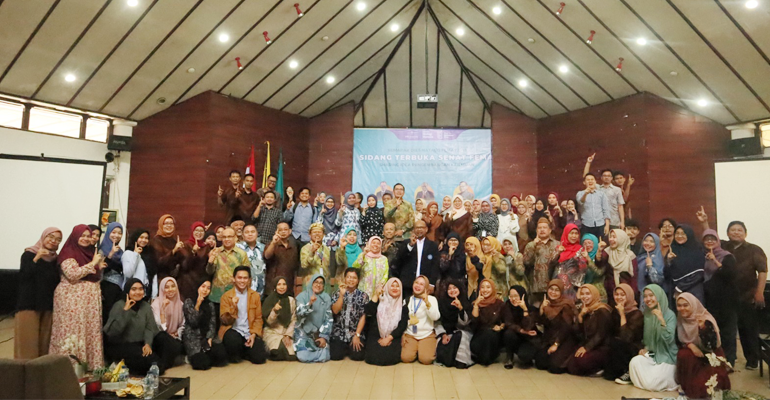Dr Sofyan Sjaf: Fema IPB University Must Become an Excellent, Innovative and Resilient Faculty

Faculty of Human Ecology (Fema) IPB University held an Open Assembly of Fema Senate with the theme Sharing Idea of Scientific Development. The activity which took place at the GMSK Auditorium, IPB Dramaga Campus was one of the series of the 18th Anniversary of Fema IPB University.
The event was attended by the dean, vice dean, chairman of the senate and staff, heads of departments, lecturers, and educational staff of Fema. This activity was opened with a speech from the Chairman of the Fema Senate, Prof. Hardinsyah, followed by the presentation of the Fema 2023-2028 strategic plan by the Dean of Fema, Dr Sofyan Sjaf.
In the future, Fema IPB University must strive to be a faculty that is superior, innovative, and resilient in education and research in human ecology. Fema IPB University must also be dedicated to community service through multi-stakeholder collaboration to improve the quality of sustainable development,” as stated by Dr Sofyan.
The main activity at this event was the presentation of material by three speakers, namely Prof Budi Setiawan, Prof Rimbawan and Dr Dwi Hastuti with moderator Prof Lala M Kolopaking.
On that occasion, Prof Budi Setiawan explained the opportunities and challenges of developing new food products for nutritional intervention. According to him, “Food-based nutrition interventions can be carried out by developing new food products according to the nutritional needs of the target group, based on potential Indonesian local foods.”
Furthermore, the interaction approach of micro and macro nutrients to overcome nutritional problems was presented by Prof Rimbawan. This material discusses nutritional problems in Indonesia, understanding the integration of metabolism and nutrient interactions and nutrition policy recommendations.
Meanwhile, Dr Dwi Hastuti elaborated on efforts to build holistic child quality. She emphasized that childcare must be holistic in nature by being oriented towards intelligence, emotions and character building.
“With this approach, it will be able to produce children who are resilient, resilient and have noble character. These traits are the key to the success of an individual’s quality in the future,” said Dr Dwi Hastuti.
In addition, discussions about how to deal with the elderly who feel alone in old age, stunting and how to care for children in the current internet era emerged in response to the presenters’ explanations. The sharing of scientific development ideas is expected to increase knowledge and be useful for the community. (*/Rz) (IAAS/ASB)



